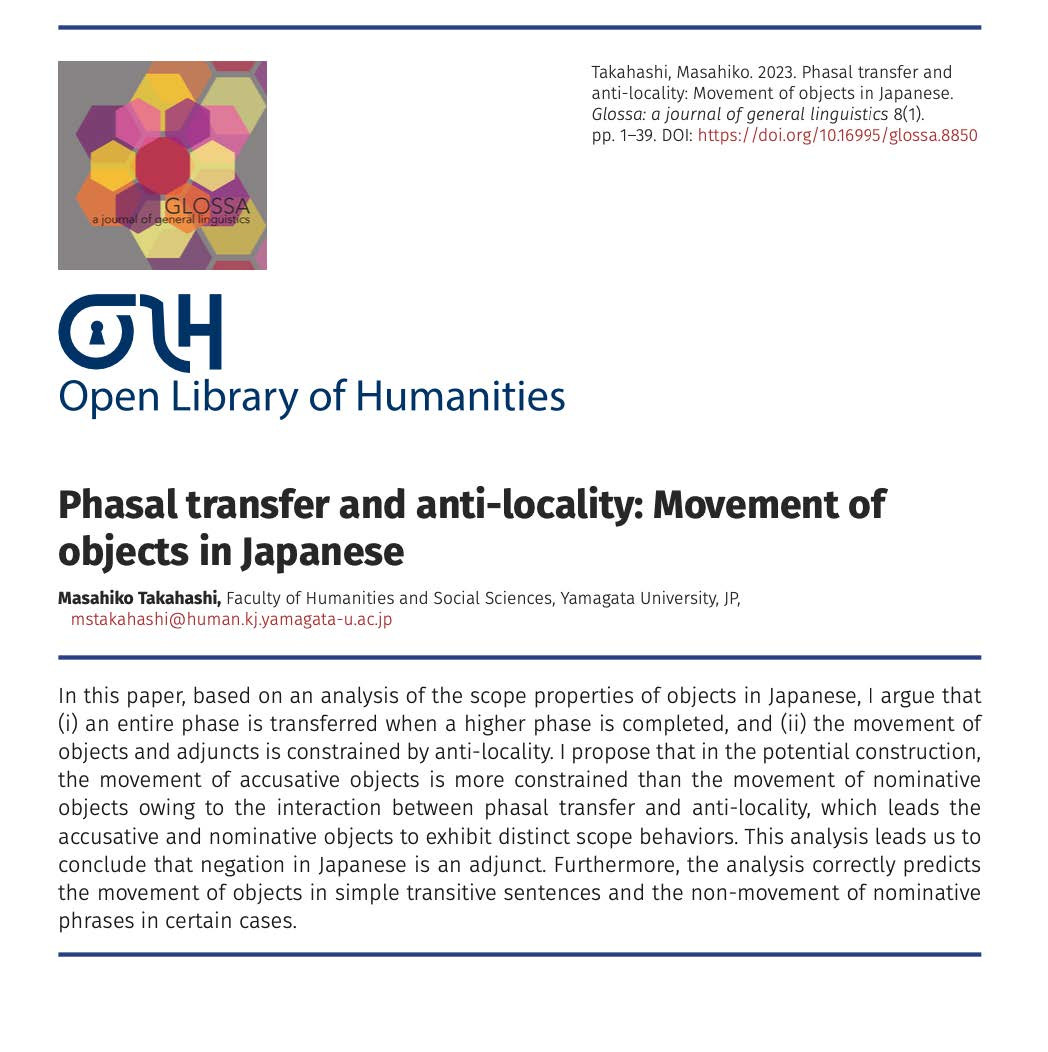自然言語は様々な法則で成り立っており、私たちはその法則を無意識のうちに知識として持っています。私はこの無意識の言語知識を研究しています。特に興味があるのは、日本語の格助詞の交替です。例えば、英語の Taro can speak French.を日本語に訳すと、(1)太郎がフランス語を話せる、 (2)太郎がフランス語が話せる、のどちらも可能で、両文の意味は同じように感じられます。違いは「フランス語」に後続する格助詞が(1)では「を」、(2)では「が」というだけです。しかし、この格助詞の違いが両文に異なった性質をもたらします。例えば、(2)では「太郎」に後続する格助詞「が」を「に」に交替できますが、(1)ではできません。私たちはこのような違いを教えられたことはなく、日頃意識することもありません。しかし、日本語母語話者であればこの格助詞の交替の可否を区別できます。このような無意識の言語に関する知識を探ることによって、人間言語の性質を明らかにしようとしています。
准教授 髙橋 真彦(言語学、統語論)
Natural languages are governed by rules, of which native speakers possess unconscious knowledge. I study this unconscious linguistic knowledge, with a focus on case particle alternation in Japanese. For example, the English sentence Taro can speak French can be translated into Japanese as either (1) Taro-ga Fransugo-wo hanaseru or (2) Taro-ga Fransugo-ga hanaseru. Though both sentences seem to convey the same meaning, the selection of case particle following Fransugo ‘French’, either -wo in (1) or -ga in (2), affects the sentences significantly. For instance, in (2), the case particle -ga following Taro can be replaced with -ni, but this replacement is not possible in (1). These differences are neither explicitly taught nor consciously considered in daily life. However, native speakers of Japanese can intuitively determine whether these substitutions are acceptable. I aim to shed light on the nature of human language by exploring this kind of unconscious linguistic knowledge.
Associate Professor (Linguistics, Syntax)
TAKAHASHI Masahiko


寄附・研究のお申し込みはこちら
いいね
0
会員ログイン